My oppression, my privilege: Instersectionality and how it intertwines
October 24, 2014
What is oppression? According to the Blackwell Dictionary of Sociology “Social oppression is a concept that describes a relationship between groups or categories … of people in which a dominant group benefits from the systematic abuse, exploitation, and injustice directed toward a subordinate group.”
I suffer from oppression.
I am black, I am a woman. I am bisexual. I am an atheist. Various systems, including a flawed justice system, the patriarchy, institutional heteronormativity, and Judeo-Christian philosophical dominance (in the United States) actively marginalize and repress my experience and limit my social freedom, to the benefit of others unburdened by these characteristics.
These various oppressions interact with one another in distinct and various ways. As a woman I am more likely to be sexually assaulted than a man, however, as a black woman I am statistically more likely to be sexually assaulted than a white woman.
Because I am a black woman I am more likely to be perceived as unprofessional, promiscuous, or having “an attitude.”
Women with my skin color don’t often make it into prime-time. (Before you cry “Scandal” remember that color bias exists even within the POC spectrum. I am a darker skinned woman and thus less represented.)
People with my hair texture have a harder time getting jobs in media and the corporate world. (Although this has been changing over the last ten to fifteen years. Shout out to Alec Wek and Lupita Nyogo.)
I have been accused of shoplifting, called an animal, and had my personal space routinely violated (for example, by people or groups of people touching my hair or skin without my consent) because of my race.
My atheism partially alienates me from the majority of my original support structures.
Since moving from my hometown I’ve also found more people who see irreligiosity as normal. However, it can be difficult to find community as an atheist. When atheists avoid religious gatherings they are seen as isolating themselves. When we get together people question our motives and suggest that without a common belief in a deity we have no legitimate reason to congregate.
And when everything about life, from stress-management (Give it over to god!), to grief (God will help you heal.), to personal health (Prayer and meditation will help you with your depression/weight-loss/diet/etc.) is addressed in terms of theism, it’s easy to feel that one is living in a world devoid of relevant advice or comfort.
I don’t have it nearly as bad as some of my friends who were kicked out of their homes, blackmailed with their tuition funds, banned from groups of friends, preached at, disowned, or branded sociopaths for their religious non-conformity.
Finally, I identify with a sexual orientation that many heterosexuals and LGBTQ people claim doesn’t even exist. I might be kinky, experimenting, confused, or perhaps even hiding my homosexuality, but bisexual? “That’s not a thing.”
What is privilege? According to Sian Ferguson’s article “Privilege 101: a Quick and Dirty Guide,” privilege may be defined as “a set of unearned benefits given to people who fit into a specific social group.”
I benefit from privilege.
I am cisgender. I am from the middle-class. I have a family legacy of college education. I did not earn the benefits that come with this set of circumstances, and yet I enjoy them at the expense of those who do not share these characteristics with me.
As a cis-woman I have a place of privilege amongst woman. My physical sex, gender identity, and presentation all conform to my culture’s expectations of womanhood. No one questions my identity or calls me a “man.” I can use the women’s bathroom without the fear of violence. My breasts and genitalia are private (in the sense that no one asks me what they look like or if they’re real, not so much when we consider the social politics surrounding women’s health). I am not a punch-line or seen as predator.
The disadvantages dealt to me by my race and gender are ameliorated to a degree by my socioeconomic and educational status. I don’t “sound black,” which is really a racist way of saying that my patterns of speech conform to those traditionally used by those in power: white, middle-to-upper-class, college educated people. As soon as I open my mouth my intelligence is affirmed, and rarely ever questioned again.
I do not know what it is to live in economic instability. I have been broke, but I have never been poor. If ever my husband and I go through a truly lean period, unable to cover our food or rent, we have parents and relatives who are willing and able to lend us money or give us a place to stay for a while.
“Because I am a black woman I am more likely to be perceived as unprofessional, promiscuous, or having ‘an attitude.'” – Jaclyn Archer Eagle Life Editor
Being middle-class means I have always had access to good healthcare (including dental) and nutritious food. And let’s not forget fashionable clothes and electronic devices like cell phones, tablets, and computers, which make it easier to get jobs and go to school.
My family legacy of higher education affords me cultural capital which came in handy when it was time to apply for college, choose a major and career path (or three), study abroad, take advantage of internships, and apply for jobs in the context of academia. I knew how to do these things because these are normal activities for the people in my family. College has never been an “if,” it has always been a “when.” My path in higher education has never been a “how” of process; it has always been a “how” of preference.
And because I am married to a man, the fact that I am also attracted to women has little to no effect on my life.
While we’re at it, I’m also relatively thin and able-bodied.
What is the net result of all this? There is none. Privilege and oppression are not pluses and minuses to be added in a column. My privilege does not negate the oppression I experience. And the oppression I experience does not negate my privilege.
Just as a white person will never know what it is to be a person of color in America, I will never know what it is to be transgender. So it would be utterly fruitless for a transgender individual and me to argue over who has the greater right to outrage.
While it’s easy to get into “I have it worse” pissing contests, these myopic arguments do nothing for anyone’s cause and only prove, in the words of Lupita Nyogo, that we have come to “enjoy the seduction of inadequacy.” We don’t want anyone horning in on our oppression territory because we’ve become too attached to our identity as victims instead of our duty as survivors and fighters for a better society.
This is not to say all oppressions are equal. They are not, and it is right recognize this; but to fight over whose struggle is more difficult misses the greater point. Every group’s oppression is worthy of redress. Or to quote Dr. King, “Injustice anywhere is a threat to justice everywhere.”
Marginalized individuals should be allies of one another. If you don’t think atheist oppression is your hill to die on, you should at least respect that it is a worthy hill, deserving of good soldiers.
Just as I shouldn’t allow my oppression to become a source of false righteousness or pride, I shouldn’t allow my privilege become a source of guilt. Guilt is only a useful emotion when it relates to wrongs one has actually committed and inspires an improvement in behavior. If my guilt only inspires defensiveness, avoidance, or self-loathing, it will only lead me to be deaf, ignorant, and inert.
“What is privilege? According to Sian Ferguson’s article, ‘Privilege 101: a Quick and Dirty Guide,’ privilege may be defined as ‘a set of unearned benefits given to people who fit into a specific social group.’ – Sian Ferguson Article: “Privilege 101: a Quick and Dirty Guide.”
As someone who experiences oppression, I do not desire the guilt of the privileged. It doesn’t give me a perverse sense of satisfaction, or a leg-up. Keep your guilt. I want your help. I want you to do adequate research, to ask for my opinions and experiences, and to listen with openness and empathy. I want you to stand by me when I rise up in outrage against the wrongs done to me and those like me. I want you to give a damn.
And I highly suspect this is what people on the flip-side of my privilege want from me.
It is easy to divide into factions, forgetting just how many of us live our lives on both sides of the coin, but we have little to gain by pointing fingers and refusing to acknowledge the complexity of our various social statuses. If we truly care about ourselves, we should learn to stand with one another as members of intersecting communities, all of whom want to build a society based not in privilege, or oppression, but personal merit.



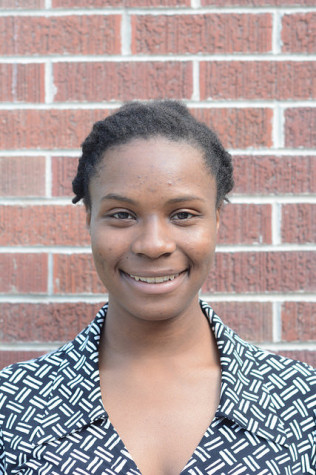
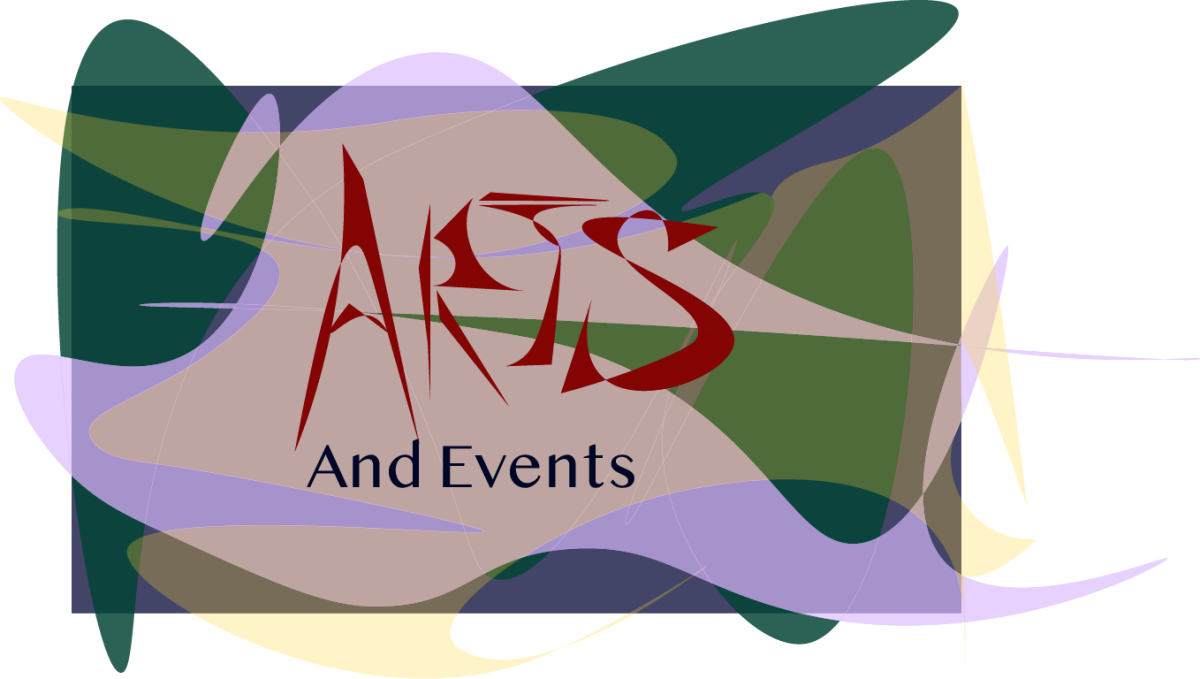
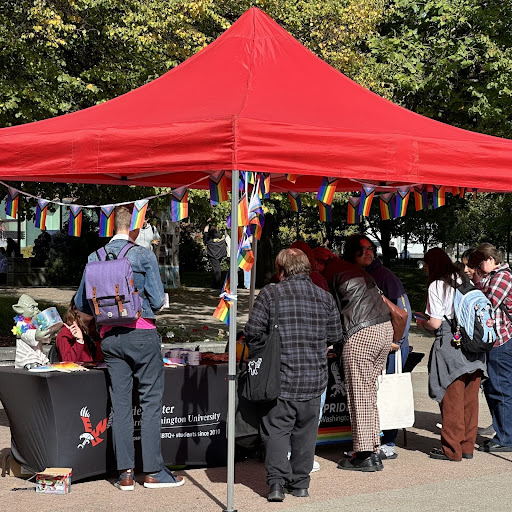
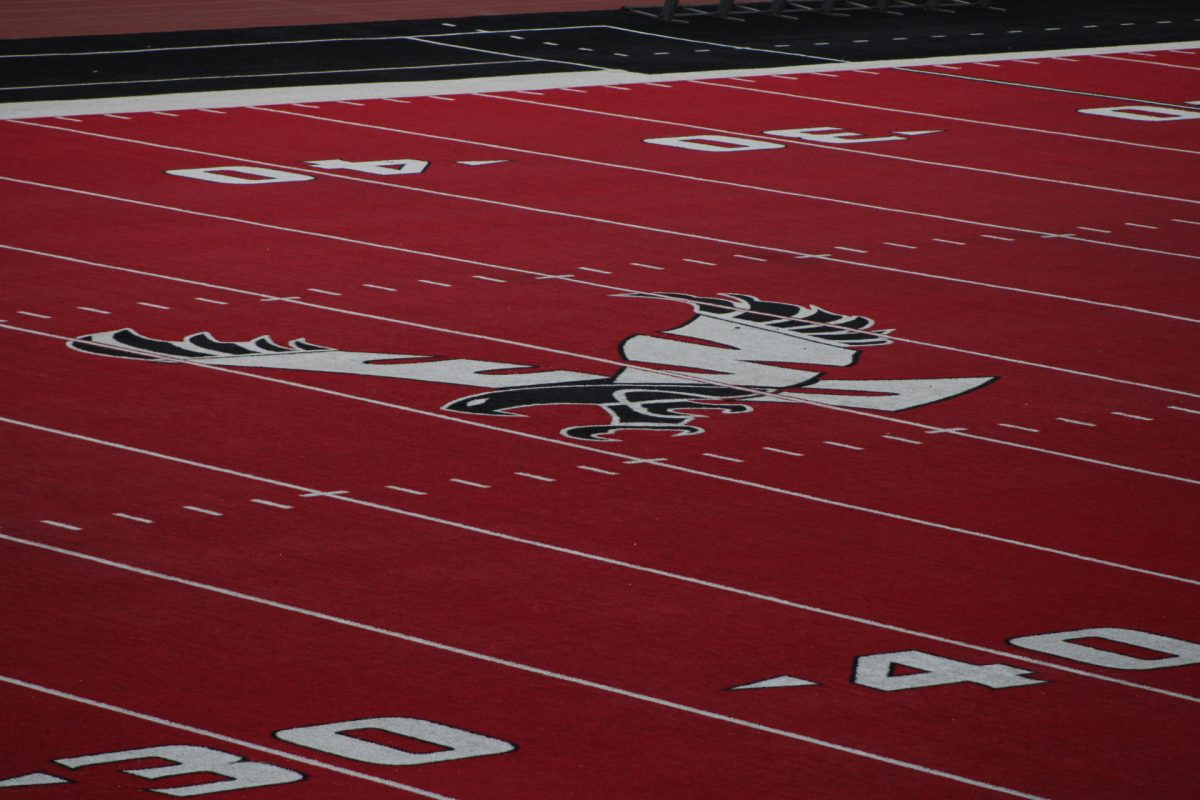
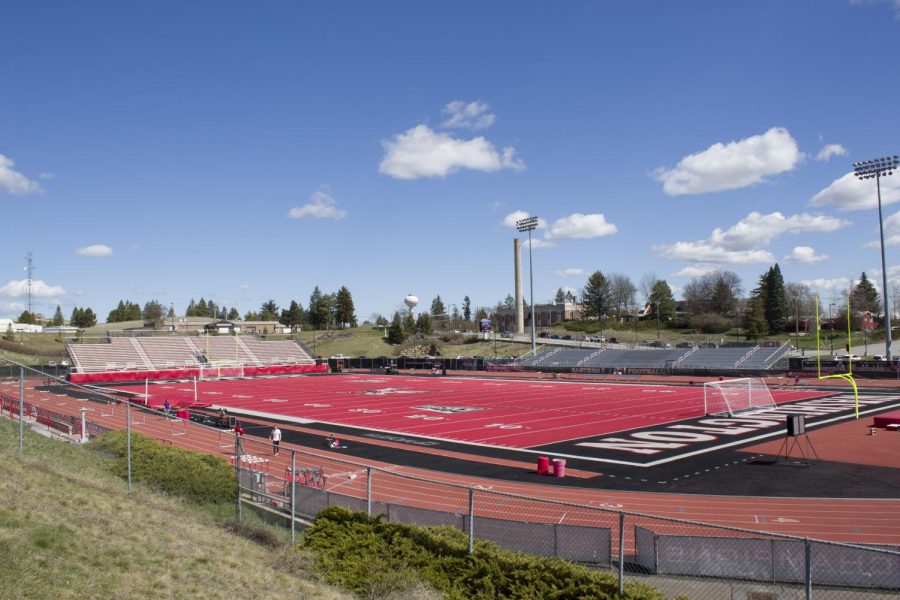
Ryan Weeks • Oct 29, 2014 at 5:49 pm
Feminism is the sickest, most violent movement to oppress people in western civilization. With Presidents, Secretaries of State and Attorney General’s spewing the same ugly bigoted lies as Feminists, the world is truly entering an era of dark oppression and bigoted lies as the excuse for it.
THIS is oppression:
In this article you completely ignore the horrific crimes against humanity being committed by feminism. I am extremely liberal, and consider gender equality my reason for living, and Feminism is the absolute enemy of gender equality. Why are feminist incapable of telling the truth about domestic violence, income levels, rape or child abuse? I have never heard a major speech by a feminist that didn’t contain dozens of ugly bigoted lies about men, but I am supposed to believe these bigoted lies are the result of efforts at equality?!!!
how about some #sheforhe about these issues:
Despite what you have been told, in the western world today almost all legal and lethal sexual discrimination is against men.
Men are 97% of combat fatalities.
Men pay 97% of Alimony
Men make 94% of work suicides.
Men make up 93% of work fatalities.
Men make up 81% of all war deaths.
Men lose custody in 84% of divorces.
80% of all suicides are men.
77% of homicide victims are men.
89% of men will be the victim of at least one violent crime.
Men are over twice as victimised by strangers as women.
Men are 165% more likely to be convicted than women.
Men get 63% longer sentences than women for the same crime.
Court bias against men is at least 6 times bigger than racial bias.
Males are discriminated against in school and University.
Boys face vastly more corporal punishment than girls.
60-80% of the homeless are men.
Women’s Cancers receive 15 times more funding than men’s
At least 10% of fathers are victims of paternity fraud.
One third of all fathers in the USA have lost custody of children, most are expected to pay for this.
40-70% of domestic violence is against men however less than 1% of domestic violence shelter spaces are for men.
Male fatality rates are vastly higher than women’s
Worldwide there are 107 men born for every 100 women, by age 65 there are 78 men for every 100 women, in countries like the USA & UK, its even worse, with 75/76 men for every 100 women. Despite the fact that health care spending for men is nearly twice as effective. In the few countries that have a majority male population and a preference for male children like China, Sons are legally obliged to care for parents when they are older, where as daughters are not. Many other countries like India have this as a social obligation. goo.gl/iZUcJJ
Despite all the pressures and risks facing men today support services for men are almost non existent compared to services for women. There are departments for women’s issues in the White House and the UN, but none for men. The UN promotes genital mutilation of male children but condems female genital mutilation. This is Real Sexism.
THE REAL MONEY GAP.
Men earn 61.5% of all income but only account for 25% of domestic spending. Men only spend 40% of what they earn after tax. In contrast women make up 38.5% of all income but control 75% of domestic spending, women on average spend 90% MORE MONEY THAN THEY EARN. Men are exploited as cash machines and even with spending on children accounted for women still spend more money on themselves than the combined spending for men and children. This can even be observed in the floor space allocated to women’s products in most shopping centres.
TAX & HEALTHCARE DISCRIMINATION
Men pay over 70% of income tax but the vast majority of public spending is on services for women. There is more money spent on breast cancer than lung cancer and prostate cancer combined, despite the fact that lung cancer alone has 3-4 times more fatalities than breast cancer. A man’s chance of getting cancer is 44% and 23% of men will die from cancer, 38% of women get cancer and 19% die. Yet there is vastly more money spent on cancer for women, this is lethal discrimination. Women pay 60% less tax despite spending 300% more in domestic spending than men. Women also consume two third of public spending, there are 3 times the amount of gender specific health services for women than men despite the fact that for equal increases in health spending a man’s life expectancy rate increases nearly twice as much as a woman’s.
DOMESTIC VIOLENCE
There are hundreds of surveys which shows women are as violent if not more violent than men in domestic violence cases. Men get arrested in 85% of all arrests but its estimated that Women are the perpetrators in most Domestic Violence cases. Most reciprocal violence is started by women and 70% of non reciprocal violence is perpetrated by women. Women however only get arrested in 15% of all DV arrests. This example of 572 different studies covering 371,600 people demonstrate that women are as physically aggressive, or more aggressive, than men in their relationships with their spouses or male partners. http://www.csulb.edu/~mfiebert/assault.htm
More men than women were victims of intimate partner physical violence and over 40% of severe physical violence was directed at men. http://www.batteredmen.com/NISVS.htm
Despite this though,99.3% of DV shelter spaces are for women and even men who report violence against them by women are arrested far more often than the woman who is attacking them.
Gynocentric Sexism
Gynocentricism is the scientifically proven fact that almost every man, woman and child has been raised and instilled with a woman’s point of view. Men are taught to give women special treatment from birth and women are taught to expect preferential treatment from from men.
Gynocentricism is by definition sexist however it has become the default social model for most of the planet. Men are trained to suppress emotions and always be considerate of a woman’s feelings, men are trained to sacrifice, work and die to provide for women’s happiness.
Men and women are trained to always take the woman’s side over a man. Women are taught to support each other and view men’s pain and suffering as less important. Men are taught that fighting, dying and sacrificing themselves is noble but women experiencing any emotional distress is terrible.
This sexist attitude and maternal brainwashing has seen men literally dying to protect women who quite often take the sacrifices men make completely for granted. This is real sexism and it is taught at a very early age and reinforced in our society through society, the media, education and legal system.
Government Sponsored Sexism
1) Real sexism is almost no shelters for male victims of domestic violence.
2) Real sexism is men getting harsher punishments for the same crime.
3) Real sexism is countries with compulsorily military service for men.
4) Real sexism, courts that takes children from fathers based on gender.
5) Men cannot even vote or get citizenship without enrolling for the draft.
6) Real sexism is numerous government departments dealing with women’s issues but none dealing with men’s issues.
7) Male infant circumcision/genital mutilation is legal and performed widely and even completely socially accepted but female genital mutilation is not.
8) A young boy raped by a woman can be forced to pay child support to his rapist if she gets pregnant, that’s real sexism.
9) Many countries do not even recognize female on male rape. It can maximally only amount to “sexual assault” that’s real sexism.
10) Real sexism is having no special laws like VAWA to protect men, even though men are the majority of victims of violent crime.
11) There are drives to fill quotas for women for the high paid roles but not in the dangerous jobs dominated by men, thats real sexism.
12) In the army, police, fire service or any other position women have to meet much lower physical standards than men.
13) Real sexism is services for men only given a fraction of the funds that services for women are given at a government and a social level.
14) For the same crime, irrespective of the gender of the offender, the perpetrator gets more punishment if the victim is female rather than male.
15) Most divorce laws are skewed against men, men can lose half his properly, money and children to a woman who decides to leave him.
He is expected to pay for this betrayal, especially if he has already provided for and supported her, this is real sexism.
Social sexism against men
16) Real sexism is being mocked when raped because you’re a man.
17) Men are expected to not show emotion and remain stoic at all times.
18) Victim blaming is acceptable ONLY when men are the victims and women the perpetrator. This is real sexism.
19) Real sexism is having your gender stereotyped by society as being violent, abusers, etc.
20) Men’s lives are given less value in any emergency situation.
21) Male children are often given harsher punishments by teachers for the same level of mischief as girls.
22) Young boys are given less care and attention by parents than girls and beaten over twice as often as girls by parents.
23) Violence against men by women is much more socially acceptable.
24) Affirmative action for women only in jobs, education, grants, etc.
25) Men enrolled in are often given tougher, more dangerous tasks to perform than women in the same post (in a job) This is real sexism.
27) Males who complain about being objectified are shamed as being “mentally fragile” or their sexuality is questioned. This is real sexism.
28) Men do not have the privilege of showing affection to each other in public as women without people questioning their sexuality.
29) Men are expected to ask women out, pay for dates, decide on the venue – if she rejects him he is often labelled creepy or needy.
30) If a man slaps a woman, he is an abuser and a monster, If a woman slaps a man, “he must have done something to annoy her”
31) When a man breaks up with a woman, he is called a “jerk”. When a woman dumps a man, “he must have failed her somehow”
32) Men are excluded from many positions such as babysitters, etc.
33) Young men having to pay higher car insurance is acceptable but the idea of women having to pay more for health insurance is not.
34) Despite the fact that the real victims of sexual discrimination are men the term sexual discrimination usually excludes men and the vast majority of surveys and news stories about sexual discrimination dont include men.
35) Our culture and media makes the assumption of men as guilty, violent offenders where as women are given special treatment at every turn.
36) In modern movies and TV violence against men is glorified but violence against women is regarded as especially horrific.
37) Many news reports will read the number of people killed and then highlight women and children as more tragic than male death.
EG: “37 people were killed in a bus crash including 17 women”
38) Men are expected to carry heavy things for women, give up their seats for women, shovel snow, mow gardens and do any other job involving manual labour, that women do not wish to perform.
39) Real sexism is a society where men are taught that a man’s role is to work, provide, pay and die in order to ensure a woman’s happiness.
40) Real sexism is the fact that men working longer hours in harder more dangerous jobs to earn more money to pay for women’s choices is being turned into a weapon against men.